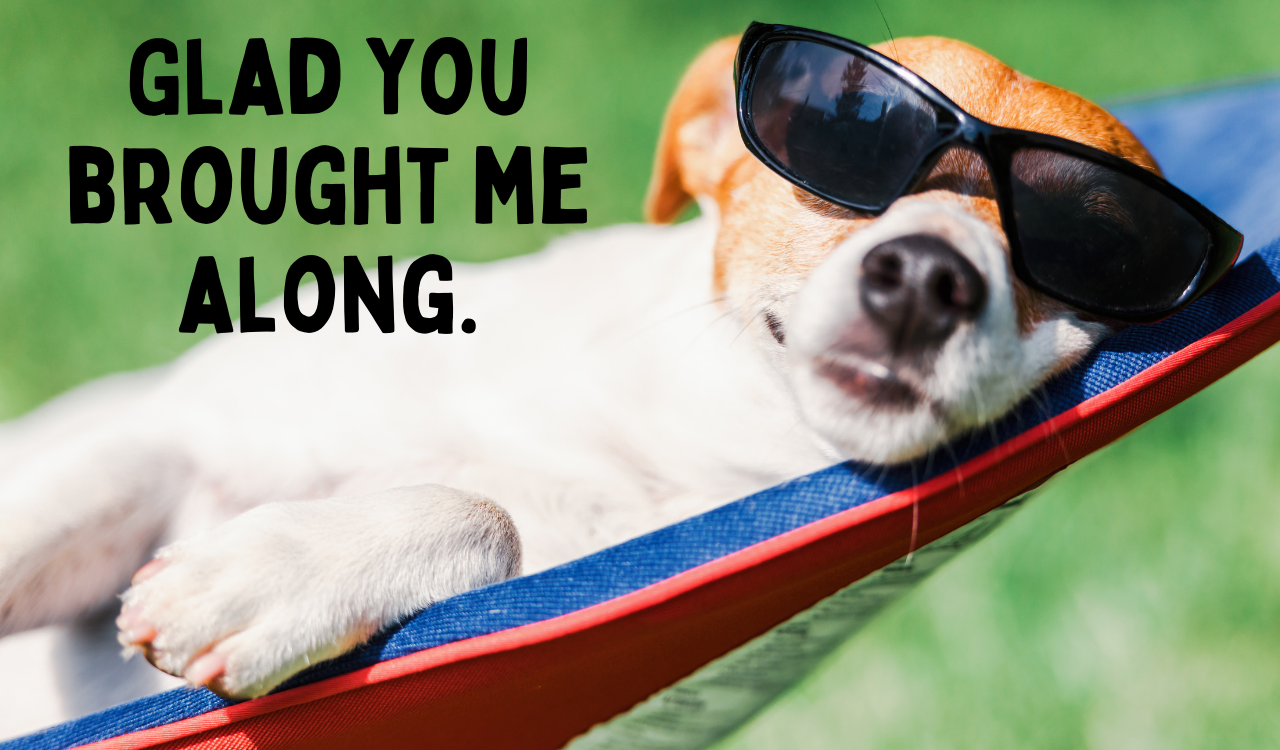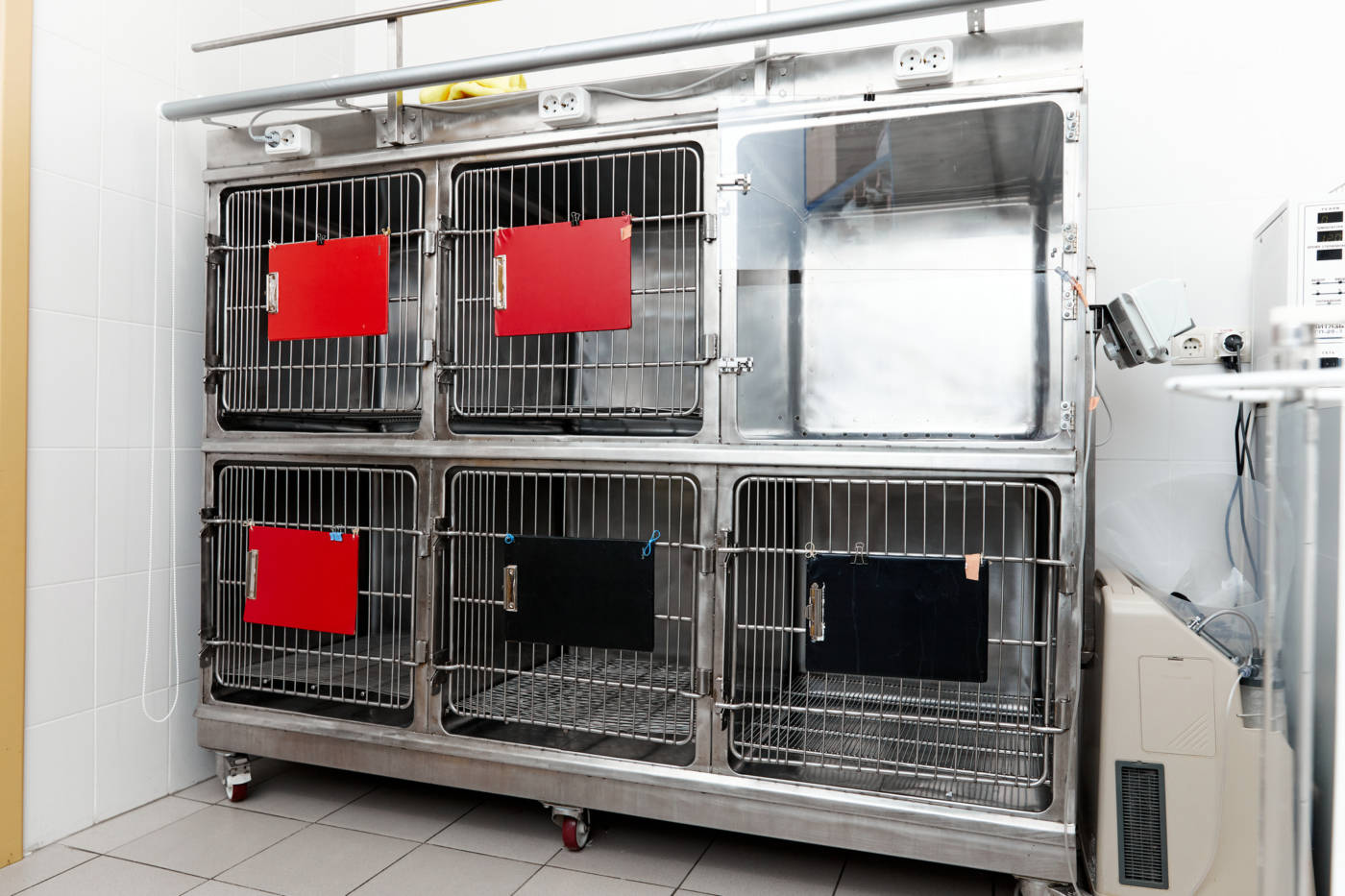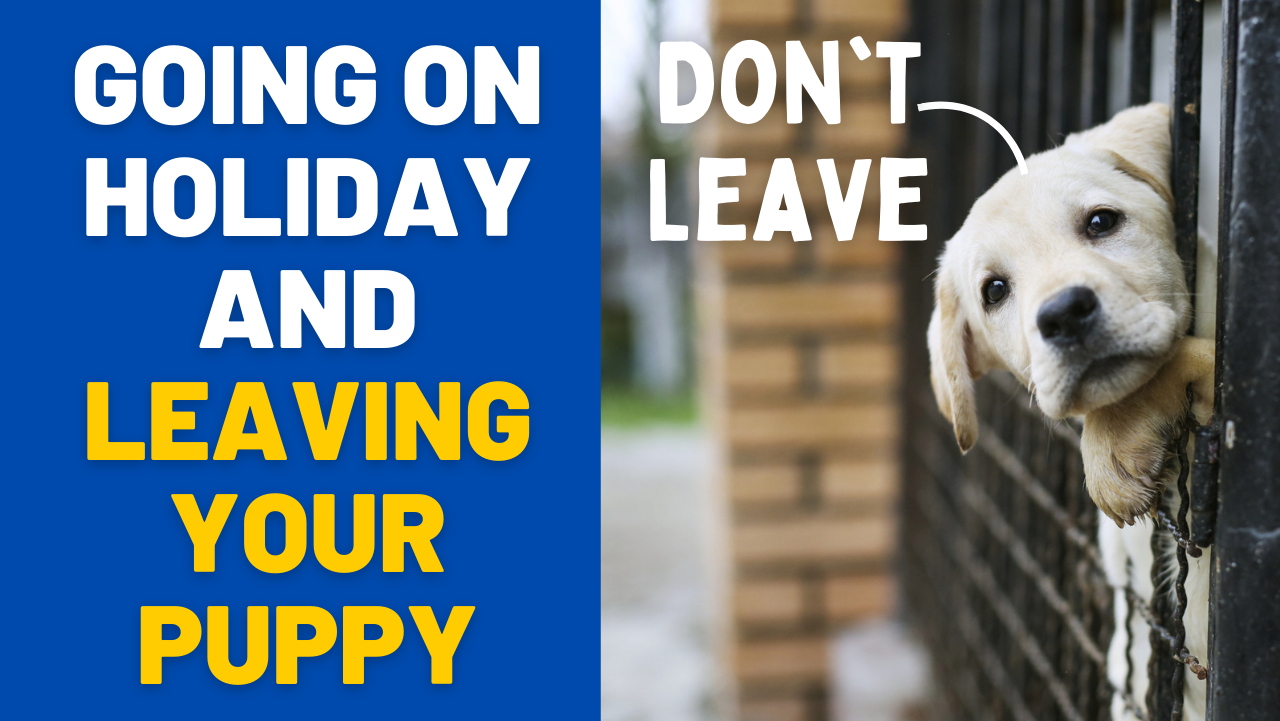Whether you are here because you’ve found yourself with a puppy and a vacation already scheduled, or you are planning on getting a puppy and want to ensure your holiday plans will work, we’ve got the answers.
Getting a Puppy Then Going on Holiday
No matter the circumstances, bringing a puppy home and then immediately going on holiday is not the ideal situation. Puppies have a critical socialization period that ends by the time they are 12-16 weeks old. You want to spend this time with your puppy, carefully exposing them to the world, rather than leaving them at a boarding facility.
If you are considering bringing a puppy into your home and already have vacation plans, you’ll need to carefully consider your options to set your puppy up for success.
It’s definitely not impossible to get a puppy and then go on holiday shortly afterwards, but it requires more planning than normally goes into bringing a puppy home.

How soon after getting a puppy can you go on holiday?
Bringing home a new puppy is a big change for them too, and changing their life too much too soon can add extra stress. You’ll want to ensure you have time to spend with your puppy so you can form a bond with them. Ideally, you will want to do this before you leave them to go on holiday.
If this isn’t possible, your puppy should be left with someone they are familiar with, rather than being left at a boarding facility. This will help to minimize stress.
For example, my now-husband and I were in a long-distance relationship when I first brought home one of my dogs, Windi. He was was just 10 weeks old then.
Because I was planning on moving to the same state my husband had moved to within the next year, he rented a not-pet-friendly apartment. They had a flexible lease so we could more easily move in together when we found a place.
We usually took turns driving to see each other on weekends once or twice a month. Since his apartment didn’t allow pets, that meant I needed somewhere to leave Windi when I went to see my husband.
In preparation for being left, I made sure Windi was comfortable being in his crate in a variety of situations, to make it easy for someone else to watch him.
He also spent time visiting the houses of friends and family members with me, to ensure he was comfortable with them, their home, and their own dogs.
Because he was familiar with the people, dogs, and homes of the people he stayed with on occasion, it wasn’t stressful for him to be in that new environment.
He was also a very confident puppy, which helped him to feel more comfortable than some dogs may feel at that age.
It was still about a month before I left Windi with someone else to go away for the weekend. Without those weeks to get to know him, his schedule, his personality, and his comfort with being left, I wouldn’t have felt as comfortable leaving him with someone else for a few days.
It’s hard to tell someone how to take care of your puppy when you don’t know your puppy’s likes, dislikes, and normal VS abnormal behaviors yet!
While I think there are certain situations where a puppy could be left sooner than that if necessary, the ideal situation would be where your puppy is left with someone while you go on holiday. And after you’ve spent at least a few weeks getting to know them yourself.
You might like to read Going on Vacation: Will my dog think I abandoned them?
One issue that can occur from going away on vacation too early with a puppy is they may develop separation anxiety. You might even notice that your puppy becomes clingy when you get back. There are ways to manage these things, but it’s best to not let them develop in the first place if possible. Which means it’s vital that you build up their confidence before leaving them. Some breeds are more confident and independent than others, so make sure you are also away of the personality of your pup before making any vacation plans.
How old should a puppy be for boarding?
In most cases, a puppy should be old enough to have received all of their vaccinations before being boarded, as they may otherwise be unprotected against some diseases that are easily transmissible between dogs in boarding facilities. This usually requires that your puppy be at least 4-6 months old.
This is especially true given that a vaccine needs time to work for usually 2 weeks before your puppy is considered protected.
Individual boarding facilities will have their own policies on how old a puppy should be to board.
Boarding facilities may require a certain amount of time to pass since your puppy’s vaccination. Or that your puppy is of a certain age, or that the puppy is spayed or neutered.
Thus, you should always check with individual boarding facilities on their policies if you are planning on leaving your dog there.
It’s also critical that you evaluate the boarding facility to ensure staff are trained properly, the facility is clean, and that your puppy will be well cared for when you leave them.
I’ve worked in multiple dog daycare and boarding facilities myself, and not all of them are places I would be comfortable leaving my own dog.
Too often staff are underpaid, undereducated, or work at a facility with an owner that would rather cut corners for financial reasons than keep the dogs in a way that’s healthiest and safest for all.
When you look for a boarding facility, make sure to ask about the experience that the staff has with dogs, any training they receive, and about their protocols for cleanliness and safety between dogs.
The facility should also smell and appear clean, and you should be allowed to tour the facility.
Not all facilities allow tours at all times of the day, especially in regards to nap time for the daycare dogs. But you should be able to see the facility in its entirety at some point to verify for yourself that dogs appear to be well cared for and the facility is clean and neat.
If you have any reservations about leaving your dog, consider another facility (or another option, such as a house sitter).

Alternatives to Boarding Your Puppy
If you are concerned about boarding your puppy at a facility, there are several other options you can consider to ensure your puppy is happy and healthy while you are on holiday.
Many of these options are ideal for very young puppies that are not fully vaccinated or are still in their critical socialization period.
Find a Sitter to Come to Your Home
Rather than taking your puppy somewhere else, you can look for someone to come stay with your puppy. Family members, friends, or professional pet sitters are all places you can check to find a sitter for your puppy.
Pet sitters can often either drop in throughout the day to ensure your puppy is cared for, or they can spend the night at your house with your puppy, too.
With this option, you get to know someone one-on-one and know exactly who is caring for your puppy, and your puppy gets to stay in an environment they are comfortable with.
Take Your Puppy to a Sitter
Of course, if having someone stay in your home is not an option, you can also take your puppy to a pet sitter’s home.
The benefit of this option over traditional boarding facilities is that your puppy will be cared for consistently by one person, rather than rotating staff. There is also less risk of health concerns if fewer dogs are in the sitter’s home.
Ideally, your puppy will stay with the sitter for a few hours in the day or have at least visited the sitter, before being left overnight to ensure they are comfortable. Especially if there will be other dogs!
Websites for Pet Sitter and Boarding Kennels
Here are some of the best websites for connecting with a pet sitter for while you’re on holiday. Some also show boarding kennels for you to check out in your area:
Delay Bringing Your Puppy Home
As much as you might want to bring your puppy home immediately, it’s still an option in some cases for your puppy to come home to you at a later date.
This option ensures your puppy doesn’t have too many changes at once, and still gets great care.
In some cases, your puppy can stay with their breeder, as was the case with Windi. While I wasn’t on holiday when he turned 8 weeks old, I was moving to a new house, so bringing him home at 10 weeks meant I could get my things moved and set up for a puppy.
I chose this option rather than tossing him into a potentially stressful situation.
In other cases, your puppy may be able to stay with a “puppy camper” or a foster parent until you can bring them home.
One of my friends recently acquired a puppy that she rehomed, and the new family already had a lengthy vacation planned. Rather than the puppy going home to them immediately and then being boarded, the puppy stayed with my friend for an additional month until the family was home and ready for the new puppy.
Are you interested in reading our post, Why Does My Dog Get up When I Move?




